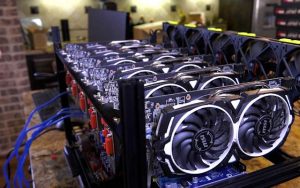In Dtracer, we consider ourselves part of the climate change movement and aim to reduce CO₂ emissions on the planet. We actively contribute to environmental sustainability and the planet's well-being.
Do you know how much electricity is emitted through POW mining processes?
Blockchain mining using Proof of Work currently consumes approximately 91 terawatt-hours of electricity per year. This is equivalent to an annual electricity usage greater than that of the entire population of Finland, which stands at 5.5 million.
A single Bitcoin transaction emits approximately 402 kilograms of carbon dioxide.
According to calculations by the Central Bank of the Netherlands (De Nederlandsche Bank), an average household emits the same amount of CO₂ over 3 weeks. Learn more about the environmental impact of cryptocurrency mining and how we can contribute to sustainability.

This means that the more cryptocurrency is used, the more CO₂ we are generating for the planet. Powering POW system miners requires additional natural resources such as oil or its derivatives to meet the substantial electricity demand in mining. Explore how the rise in cryptocurrency usage impacts CO₂ emissions and natural resource consumption, and how we can address this challenge for a more sustainable future.
Measures taken by DTRACER to reduce CO₂ production.
We Embrace Technology with POS Mining System
At Dtracer, we leverage technology with a Proof of Stake (POS) mining system. Unlike traditional methods where machines continuously work to certify each block in the blockchain, POS operates differently.
The key distinction lies in transaction validation methods. Proof of Work (POW), as seen in Bitcoin, involves miners performing intensive mathematical computations connected to electricity. In contrast, Proof of Stake (POS) allows block creation based on the amount “staked” by an individual.
Simply put, staking involves holding a certain amount of coins specific to the blockchain being mined. These coins are held in a designated wallet, effectively freezing them as stake to support network operations.
With this approach, there’s no need for extensive machine networks constantly running, reducing unnecessary CO₂ emissions. Investors participate in staking, minimizing environmental impact.
At Dtracer, we prioritize sustainability by avoiding technologies reliant on POW validation systems. Instead, we’ve chosen Polygon (Matic) blockchain technology, aligning with POS principles to support a cleaner planet.
Join us in contributing to positive change. Let’s move forward with cleaner, environmentally-friendly blockchain solutions.

Contributing to a Greener Planet: Reducing CO2 Emissions Together
Reducing CO2 emissions is crucial in our collective efforts to preserve the planet for future generations. By adopting sustainable practices and making environmentally conscious choices, we can all play a part in mitigating climate change.
At DTRACER, we are committed to reducing our carbon footprint through innovative solutions and eco-friendly initiatives. From optimizing energy efficiency to promoting renewable resources, we prioritize environmental stewardship in everything we do.
Join us in our mission to protect the environment. Together, we can make a significant impact by embracing sustainable living and advocating for policies that prioritize planetary health. Let’s work hand in hand to create a cleaner, healthier world for all.
